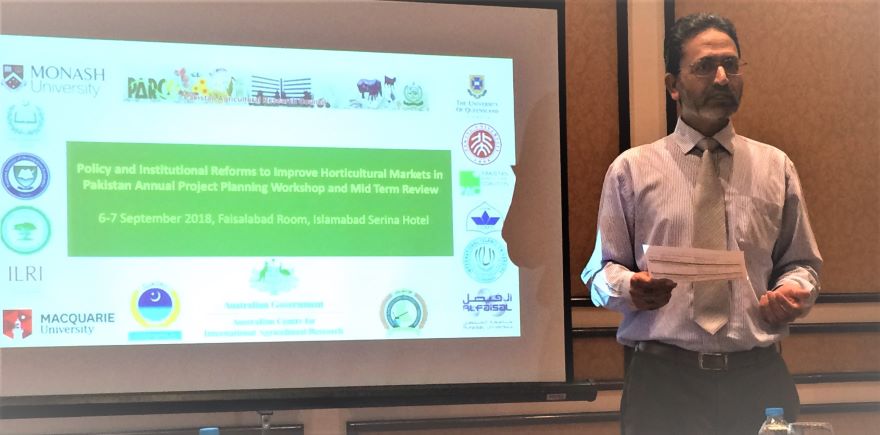
Their advice, based on sound research, will equip the government to reform legislative and regulatory value chain barriers. Farmers will have significantly better bargaining power, and consumers are also likely to benefit from more efficient markets.
The project on ‘Policy and Institutional Reforms to Improve Horticultural Markets in Pakistan’ (ADP/2014/043), identified major inefficiencies in the horticultural and broader agricultural markets and highlighted the need for urgent and comprehensive reforms of the legislative and regulatory systems governing the agricultural produce markets (see project Working Paper No. 1 by Dr Ahsan Rana).
Project research has been an important input into reform legislation currently progressing through the Punjab legislature. This legislation aims to repeal The Punjab Agricultural Produce Markets Ordinance of 1979 and to expand the Punjab Agricultural Marketing Regulatory Authority Act of 2018 to improve working of existing markets.
The project research findings were widely circulated among policy circles and following the elections last year, Dr Ahsan Rana (LUMS) and Mr Arif Nadeem (PAC – member of the Project Advisory Board)) were invited to become members of a Working Group on reforming agricultural policies in Pakistan. Dr Rana was made the team lead for the sub-group on agricultural produce markets (Minister and Secretary Agriculture Department Punjab (the most populous province of Pakistan) were members). Proposals that drew on project research gradually won support at different levels within the government and from key stakeholders, and were endorsed by the Prime Minister.
The reform will greatly reduce barriers to entry in produce markets, facilitate establishment of private markets, enhance competition, and permit farmers to sell their produce to whoever they want to sell. Farmers will have significantly better bargaining power, and consumers are also likely to benefit from more efficient markets. Farmers will be free to sell their produce wherever they want to without being compelled to sell their produce in existing regulated markets.


